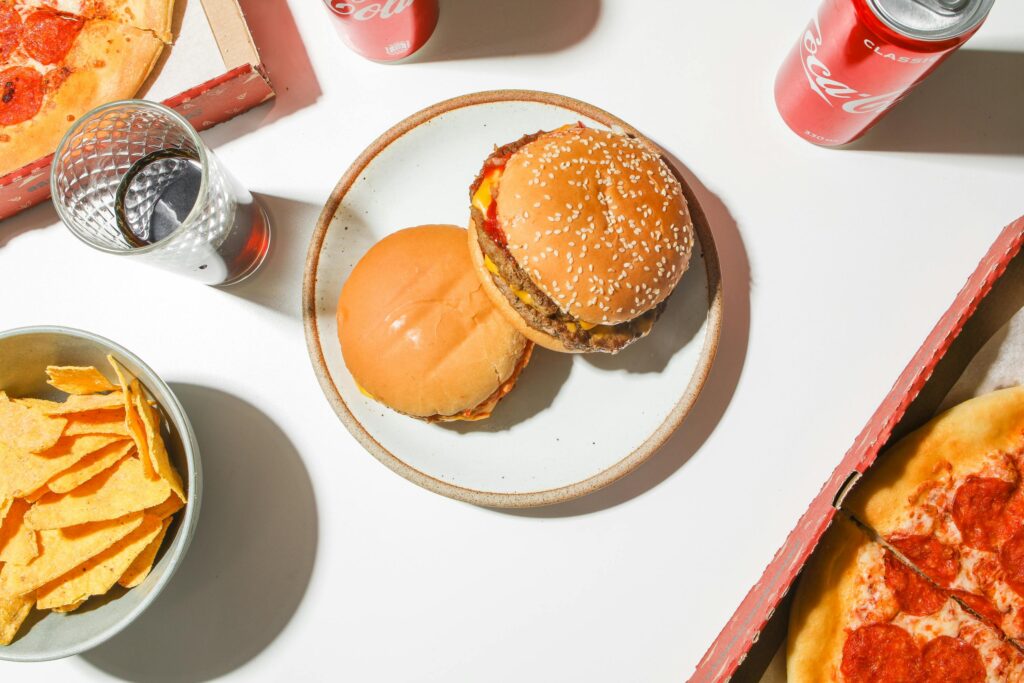If you’ve run a half or full marathon, you may be familiar with ‘hitting the wall’ before crossing the line: fatigue, heavy legs, and a major dip in performance. To prevent this, a new study from Liverpool John Moores University and Science in Sport has tested how much carbohydrate marathon runners can really handle – and how they can tailor their nutrition strategy to fuel smart, and run fast.
‘We recruited an elite cohort of male marathon runners, so these are guys with a personal best of 2 hours 30 and quicker,’ explains chief science officer at SiS, Professor James Morton.
‘We brought them into the lab after carbohydrate loading the day before, and consuming a high carbohydrate breakfast as a pre-race meal. We asked them to exercise for two hours, at an intensity that mimics race pace. This is important, because a lot of studies have used recreational athletes and exercise intensities that don’t reflect their race day abilities.’
The methods
Eight elite male runners with an average PB of 2:22 completed treadmill runs at marathon pace while consuming 60, 90 or 120 grams of carbohydrate per hour in drink form.
Morton explains, ‘We used 60 grams per hour of a single source, which was maltodextrin; 90 grams per hour of a dual-source blend, which was 60 grams of maltodextrin and 30 grams of fructose; and 120 grams per hour, with 60 grams of maltodextrin and 60 grams of fructose.’
The aim, he says, was simple: ‘We wanted to look at the effects of carbohydrate consumption during running on substrate metabolism. And this is also important because runners habitually under fuel when compared to other endurance athletes.
‘However, there is a drawback to fuelling to the correct levels: gastrointestinal distress. So what we wanted to do in this study was look at the different doses of carbohydrate.’
The results
The researchers found that carbohydrate oxidation rose in a dose-dependent manner. At the highest intake, runners not only burned more carbs but also showed a 2.6% lower oxygen cost. This is a sign of improved running economy.
‘In the 120 grams of carbohydrate per hour trial, they were able to burn 1.5-1.7 grams per minute, which are some of the highest rates of carbohydrate oxidation reported in the literature,’ says Morton.
‘The other groups of 90 grams and 60 grams had lower levels of oxidation. But of course athletes are also burning muscle glycogen and existing liver glycogen. So we were also able to measure the total amount of carbohydrate that they use.’
This is usually about 3 or 4 grams per minute, but when you exercise for two hours, eventually you start to run out. Whole-body carbohydrate use starts to decline, and you need to rely more on the fuel you’re consuming during exercise. Even in the 120 grams group, there was still a decline in whole-body carbohydrate use in the last 30 minutes of exercise.
‘In terms of carbohydrate recommendations, the traditional recommendations that were last published in 2016 were between 30 and 90 grams of carbohydrates per hour, depending on the exercise duration,’ Morton says.
He continues, ‘So typically if your event is 60 minutes or less, it’s like 30 grams per hour. If it’s 2.5 hours and above, then they would recommend 90 grams per hour of dual source blends, maltodextrin, glucose plus fructose.’

What does this mean for us?
‘If you really want to go fast, you probably want to have between 90 and 120g of carbs per hour’
Based on these new findings, Morton concludes: ‘You need to carbohydrate load the day before. You need to have a carbohydrate-rich breakfast. And if you really want to go fast, you probably do want to have between 90 and 120 grams of carbohydrates per hour.
‘That will be new to runners. This will change the literature. We hope that it will change the recommendations to elite runners. For sure, now we know that runners are able to use 120 grams per hour. They just need to practice it and experience it.
‘If you practice your fuelling strategy consistently in training, you will be able to metabolise and use this carbohydrate on race day, and most importantly, you should be able to run faster.’
This article originally appeared on Men’s Health UK.
Related:















